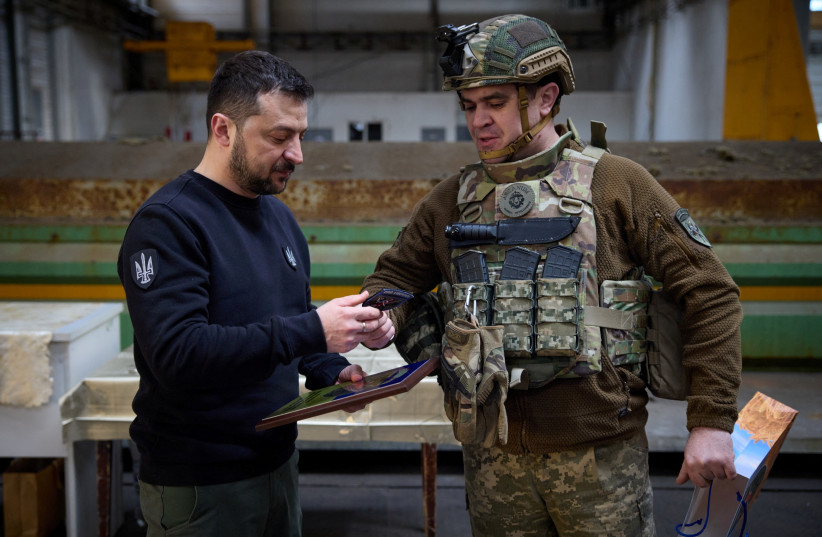The North Atlantic Treaty Organization has just had a triumphal summit. For the first time, it was held in Vilnius, a city that three decades ago was part of the Evil Empire, as Ronald Reagan had called the Soviet Union. The Alliance has accrued with new member Finland and is now all but certain to grow to 32 members with the admission of Sweden. Both Nordic States were previously neutral.
There has been much talk about unprecedented unity achieved in the face of Putin’s invasion of Ukraine, enhanced military strength and therefore greater ability to maintain peace for its members. True, a nasty hot war is raging in the heart of Europe, just across NATO’s eastern border and on the confines of its member states. But Ukraine has taken on Russia, which NATO has defined as its “main threat,” and over the past year and a half has degraded its military power so much that it will take decades to repair. So the Alliance, taking the cue from the US and the “Old Europe,” once more blithely put Ukraine’s membership onto the back burner, promising instead to keep providing weapons and material support to help Ukrainians help themselves.
Moreover, UK Defense Secretary Ben Wallace advised Ukrainians to show some gratitude for whatever they got, pointing out that when it comes to weapons, NATO is no Amazon.
The highest point often also marks the start of the decline, and this may prove true in the case of the Vilnius summit as the apogee of NATO solidarity, unity, and strength. By cold-shouldering Ukraine, Washington and its main allies may have committed a major (and possibly fatal) error the repercussions of which will start to be felt very soon.
Ukraine depends on the West in so many ways that while voicing some disappointment about the result of the summit, Ukrainian President Volodymyr Zelensky had little choice but to keep thanking his Western partners for whatever they offered to him in Vilnius. But public opinion in Ukraine – and especially Ukrainian soldiers fighting Putin’s hordes at the front – may have drawn very different conclusions.

Since the start of the war, pretty much every mainstream Western politician has been professing administration for Ukraine and stating that its soldiers are defending common Western values. Yet, no one in the West has talked about putting troops in the field to fight for those values shoulder to shoulder with Ukrainians – even though the pseudo-private military units such as the Wagner Group fighting on the Russian side provided an excellent model for NATO to use if it wanted to send “volunteers” to Ukraine.
Too little from NATO too late?
WEAPONS WERE given to Ukraine only after the initial assault in February-March 2022 was repulsed by Ukrainian soldiers with whatever they had on hand, and since then they have been a trickle – not a flood – with fighter planes and long-range rockets still nowhere to be seen. Nor can Ukraine use NATO weapons to strike Russian territory, even though its soldiers and civilians are routinely murdered by rockets launched from inside Russia.
And now, the ultimate insult: when it comes to NATO, still no firm timetables or promises.
Zelensky and his government remain very popular in Ukraine but their popularity may not last – and certainly will not last if the war drags on. Ukraine is losing its men and watching its infrastructure crumble. A quarter of its population are refugees abroad. In a long war, many of them will likely decide to stay where they are finding jobs and where their kids go to school rather than return to a ruined country. Thus, gratitude to the West may easily turn to resentment.
Ukraine is a democracy, and popular resentment will be quickly felt at the ballot box. Zelensky’s popularity was sky-high when he was elected President in 2019, but it plunged just before the start of the war and soared again when he showed himself an exemplary wartime leader. However, even his reelection to a second term is no guarantee.
The summit in Vilnius shows that NATO still thinks along Cold War lines. Ukraine has degraded Russia’s military strength, so the threat to the alliance no longer exists. But since 1990, when Vilnius was still a Soviet city and the Warsaw Pact still brought together communist nations under Moscow’s leadership.
Three decades from now the political map of the world will change just as radically, with new players emerging and new alliances coming together. Who knows whether in that configuration Ukraine and its valiant, battle-hardened soldiers will continue to stand on guard for Western values.
Bayer is a New York-based writer and independent economist whose clients include The Economist Intelligence Unit, a research arm of The Economist publications.
He is a member of the board of the US Andrei Sakharov Foundation recently named by the Russian government “an undesirable foreign entity.”
